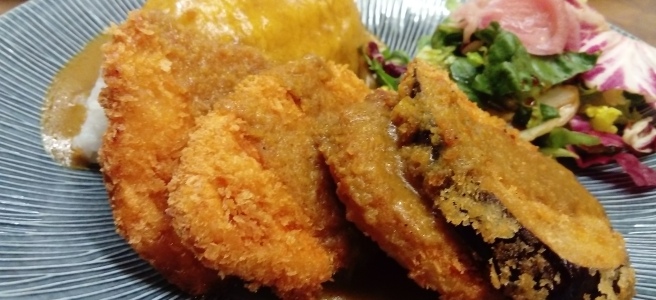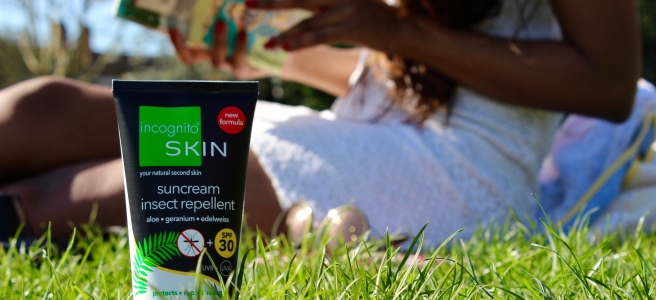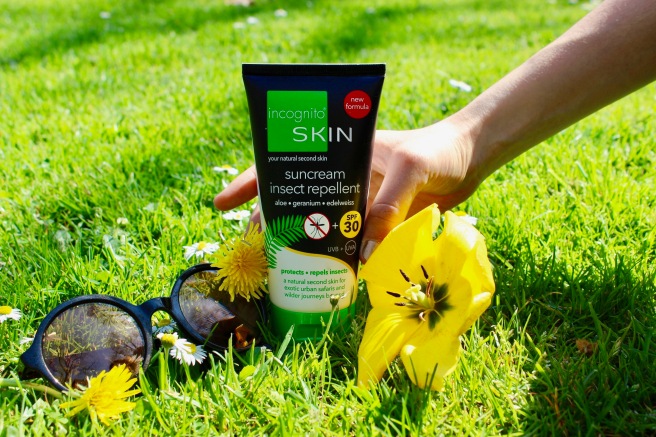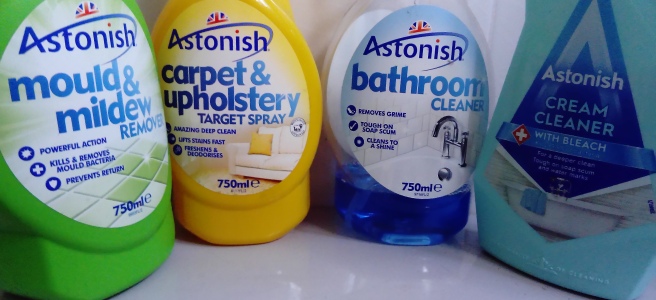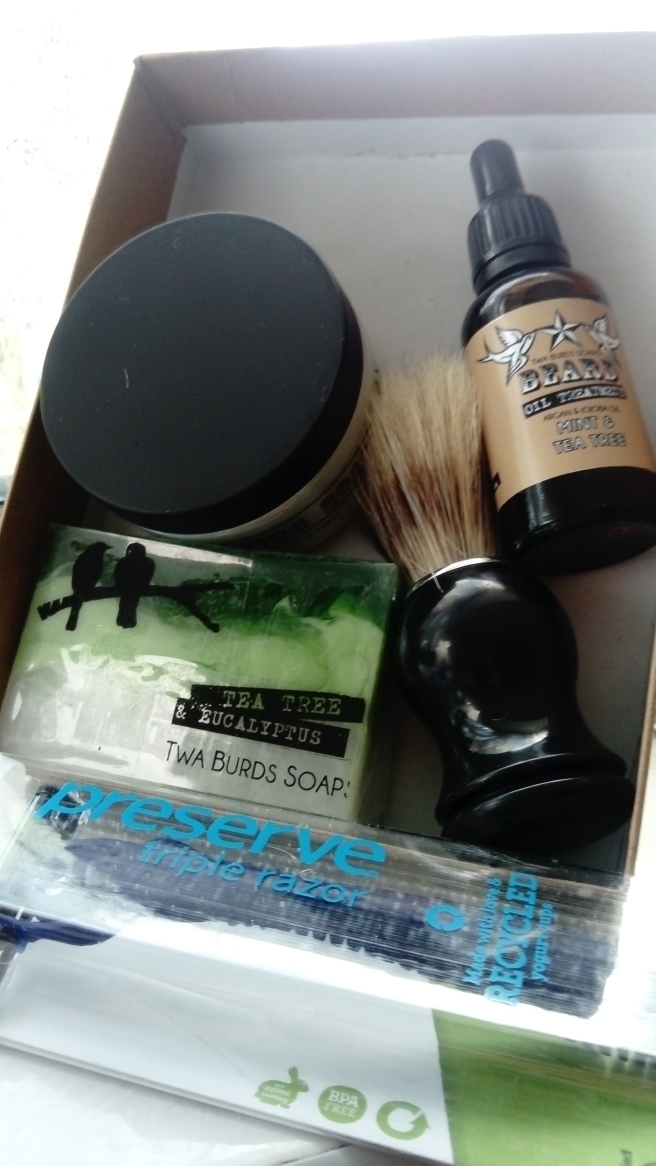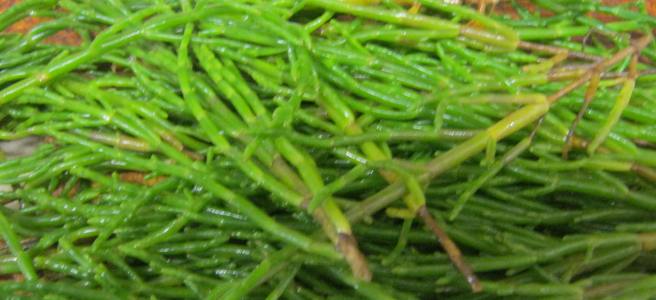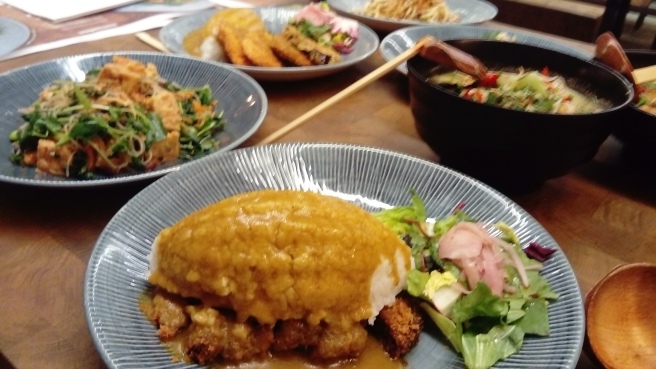
Wagamama’s vegatsu curry has been making waves in vegan circles – so I was excited to try it when I was invited to the Peterborough branch on behalf of the Peterborough Vegan Group.
My partner in vegan admin crime and I actually tried the whole vegan menu – but I’ve reviewed the kare burosu, yasai steamed gyoza and dessert in a previous blog – https://veganonadesertisland.com/2017/11/26/a-vegan-meal-out-at-wagamama-food-review/
It must also be said that the yasai katsu curry is newly vegan on the menu – originally, the salad dressing meant it wasn’t – that has been replaced with seasoning.
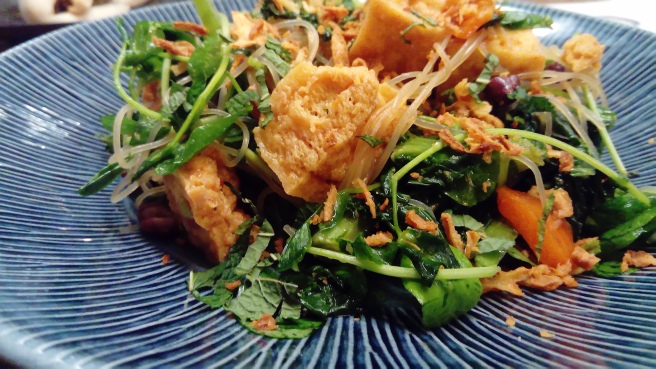
The harusame glass noodle salad is also new to the menu – don’t worry, the noodles aren’t made of real glass.
It must be said that Wagamama has the Vegan Society accreditation – this is only possible through having a separate vegan fryer in the kitchen. When dishes are ordered they actually flash up white, green for veggie or orange for vegan on the kitchen’s order screen.
I love how the vegatsu and the mixed mushroom and panko aubergine hirata steamed buns are marked with a “vegan hero” symbol – both actually tasted heroic -although, I do wish they would use capital letters on the menu – as a former sub-editor, this offends me greatly (even if the food still rocks).
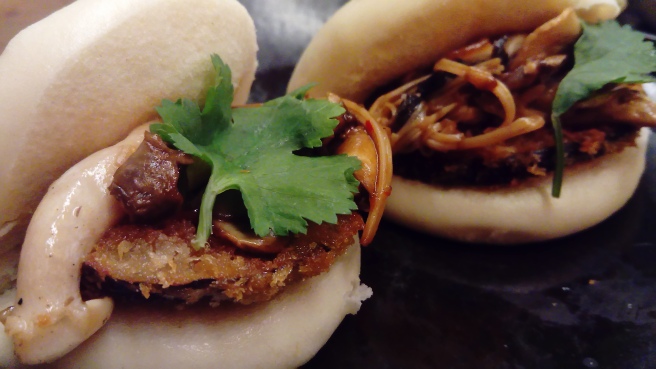
I actually fell madly and passionately in love with the, now vegan, the mixed mushroom and panko aubergine hirata steamed buns (£5.50) as a starter. As a huge mushroom fiend (I love them – I’m not a monster with a fungi head), these were always going to appeal to me – but the buns are so soft that they just melt in one’s mouth. They are stunning.
The edamame beans (£4.50) and wok-fried greens (£4.50) are also fine – but not as fine as mushrooms or dumplings (previous blog again).
We washed these down with the new nix and kix (£2.75) drinks – the cucumber and mint tasted predominantly of cucumber and the mango and ginger of mango – so, I preferred the latter. Both contain cayenne pepper to boost the metabolism – you couldn’t taste this though. All 163 Wagamama branches now use paper straws, incidentally, so there’s no damage to the environment here.

So, how was the vegasu (£10.75)? Pretty damn fine actually. I sold my soul to seitan a while ago and the devilish wedding between the gluten steaks and panko (Japanese breadcrumbs) works well here. The diner is served up a satisfying crunch before they taste the tender delights of seitan. The mound of sticky rice and mild curry (think chip shop curry sauce with class) and accompanying salad (a pleasant light vinegar hit) complete this dish.
A dish not to be upstaged? I thought so until I tried the yasai katsu curry (£9.75). The dish is a replica of the vegasu, except, instead of seitan, you get sweet potato, aubergine and butternut squash dressed in a coat of golden panko. And it works a treat.
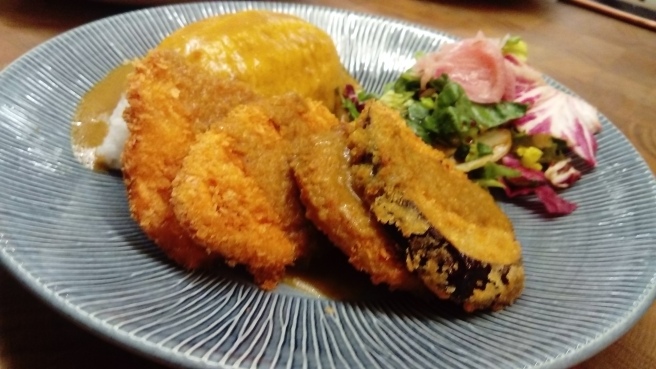
The soft veg compliments the panko gloriously, again working with the rest of the flavours on the plate to serve up a divine dish.
A mixture of flour, water and oil is used to coat the veg or seitan in order to make the panko stick, incidentally, thus veganising the dish.
The other new dish, harusame glass noodle salad (£9.50) comes with nice firm tofu, light noodles and a delicate vinegar hit. Again, this works well, especially in the summer months (what we get of them in the UK), and it’s nice to try tofu that actually has some flavour to it.
Elsewhere on the menu, the yasai pad thai (£9.95) is now vegan thanks to the use of rice noodles. The lime taste shines through here and I adore the fresh coriander leaves. This one uses silky tofu and has a nice sticky texture to it.
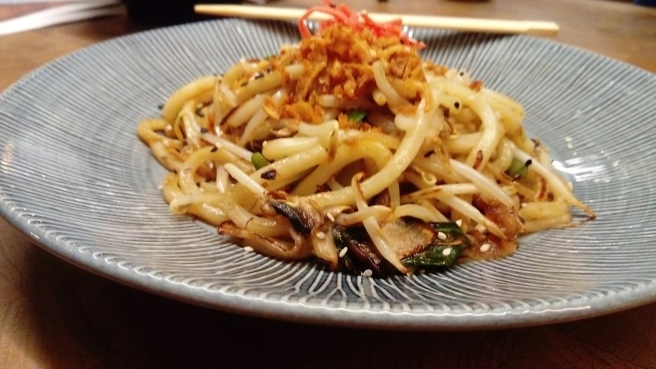
The yasai yaki soba (£8.75) has a wonderful ginger hit – and the fried shallot garnish works a treat for me – I like onions almost as much as I like mushrooms! The substantial wheat noodles are a joy to devour too.
If you like things a little spicier, you could do worse than the yasai itame (£10.75). This contains a strong chilli kick and a lovely taste of coconut. The two work very well together to create a “wow factor”. This soup contains chunks of tofu and veg including bok choi – an underrated vegetable in my view.
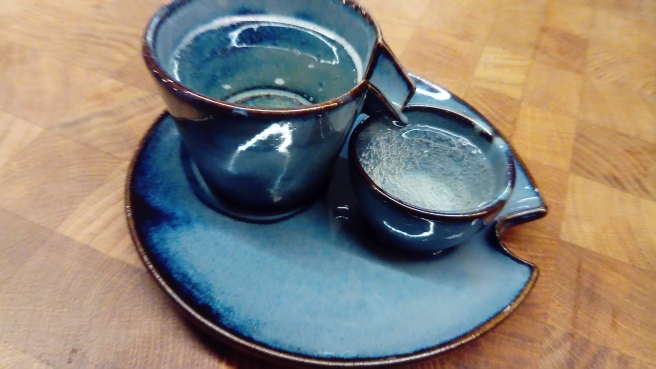
It would have been rude not to try the saki as they’re both vegan-friendly. The sho chiku bai (12%) is the cheaper option (£3.50) and the mio (5%) is equally as nice, but more than twice as expensive (£7.25). Both a light and deceptively mild, although the former does have a strong alcoholic kick. The latter is a sparkling wine equivalent and is actually more refreshing and palatable than it’s more alcoholic sister.
I guess my only complaint is that I’d like to see more choice on the dessert front. While the two sorbets on offer are very nice, a more indulgent vegan offering wouldn’t go amiss.
But, in a city such as Peterborough, which lacks a fully vegan restaurant, the expanding range available at Wagamama is very welcome indeed. They also offer takeaway and delivery services.
https://www.wagamama.com/

